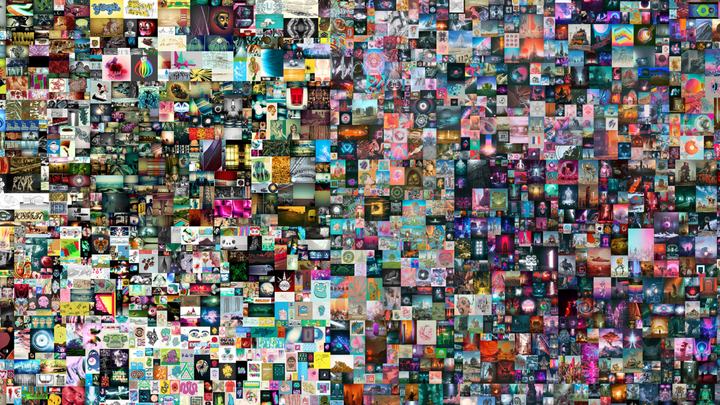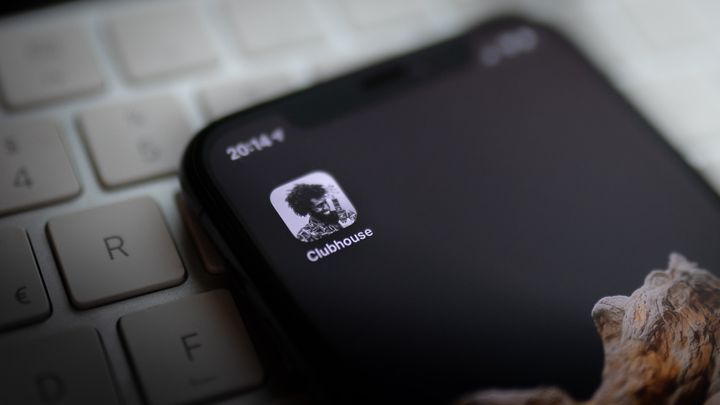🥑 Techonomics #23: The Brussels Effect, 2020 AI in Review, and an Avocado Armchair
Hi -- I’m Jake and welcome to the 23rd edition of Techonomics. We now have 3,894 subscribers who get this newsletter delivered to their inboxes weekly.
🥂 2020 Techonomics Reader Survey
Thanks to everyone who took the Techonomics reader survey! One lucky respondent received a free paid subscription and there was an amazing turnout of responses. I was really proud of the diversity in our fellow readers across geographies, industries, genders, ages, and socioeconomics. Looking forward to improving based on all of the feedback.
📈 Share Techonomics: Getting to 10,000
If you continue to find the content here valuable week over week, please share any of the articles or the newsletter with your networks. This will go really far to grow the Techonomics community, keep my writing going, and get to my 2021 goal of 10,000 subscribers.
You can share by clicking the following: LinkedIn, Twitter, Facebook, or just forward a link to a friend. Thank you!
Now, onto this week’s newsletter.
– Jake
My Essays
🇪🇺 The Brussels Effect: Thoughts on the Digital Services Act and Digital Markets Act
The EU has been on fire with its rollout of the Digital Services Act and the Digital Markets Act as an answer to Big Tech antitrust, consumer privacy, and competition in Europe. On top of that, we are seeing EU nation states beginning to roll out taxation on digital goods sold in their regions. These moves were predicated long ago by the increasing power of technology in the world, and more importantly, by the companies with that control. It just so happens that the majority of those companies are in the US or China.
The Brussels Effect then is the idea that rules, regulations, and legislation put in place by the European Union have broader, sweeping implications for the companies in which they impact -- the lowest common denominator effect. Since technology, specifically software, companies can reach a theoretically unlimited audience of customers, they tend to build things in a scalable way to cater to all. Yes, there are ways that companies need to build specific to regions or different nations, but even that is done in a relatively scalable way.
The Podcast
🛒 Techonomics Podcast #2: Amazon, Shopify, and the Future of Ecommerce
In our second episode, Arun and I compare and contrast the different approaches of two behemoth ecommerce companies: Amazon and Shopify. We also look at their approaches in the wave of success during the pandemic and what new technology means for the future of ecommerce.
We are excited to bring this podcast to you and are working on getting the kinks out. This podcast is only for paid subscribers for the time being, but we are planning to open it up to everyone eventually. Subscribe now for an early take.
Visual(s) of the week
🥑 Avocado armchair: A bit different than our usual visuals of the week, but there is a lot behind the avocado armchair. Each of these photos was created by the combination of two machine learning models -- CLIP and DALL-E. Yes, that’s right: AI drew these images. This happens to be an extension of the GPT-3 model from OpenAI and is impressive. Like most AI, it has a long way to go, but the combination of language and image creation is mind-blowing. (link)
Interesting reads
📜 Democracy and Platforms: Two very big and important technology stories hit this week after the horrible events that occurred in DC this past week. Trump has been either suspended or permanently removed from multiple platforms like Facebook and Twitter, and Parler has been removed from both app stores and AWS. This is the power of the freedom of speech for both individuals and the companies that are taking action to prevent those same events. Regardless of how you feel about this, it’s an important topic based on the power of platforms in the backdrop of antitrust discussions. Ben Thompson puts it best with his framework and prioritization of preserving democracy. It’s important to be informed, at the least. (link)
🔥 AI is a dumpster fire: is the title of a great piece from Filip Piekniewski. He looks back at the state of AI in 2020 and how we are going through a continued hype cycle that peaked a few years ago when you could put .ai at the end of your URL and get a check written. That hype cycle, even with the avocado armchair, isn’t backed up by much AI success in the market, particularly with startups and self-driving. If only Elon would donate more of his fortune to a public coalition funding AI. (link)
🏒 Hockey stick: Apple’s App Store continues to break records even in the face of gatekeeping allegations from the Coalition for App Fairness and the EU regulations we talked about in 🇪🇺 The Brussels Effect. App Store spending was up 27% year-over-year in the last week of 2020 with $1.8 billion up from $1.42 billion the previous year. This was an increase of 16% from last year’s 11% increase year-over-year. This data will likely be used against them in any antitrust claims, but the real kicker is that this data implies the App Store reaching $1 trillion/year implied value. This is not a simple discussion given that without the App Store, there would be no $200 billion profit from developers since its creation in 2008. (link)
💰 What’s your wager? Super interesting piece about a political stock market and betting against QAnon conspiracy theories. The trickiest part about QAnon, as Cage puts it: “It’s not one clearly defined group of people screaming insane theories into a dark corner of the Internet. It’s a mist quietly settling over society, and people often don’t realize they’re breathing it in.” This is the power of the internet, mass communication, and platforms -- decentralization of ideas can remove accountability. (link)
🏭 Pound for Pound: More for the world of chips is the background into how TSMC has become the “Switzerland” of chips. Last week in 📲 Everyone’s a Chip Designer we discussed the trend of fabless, or design-only chip companies and how that makes manufacturing incumbents stronger. This is a story of how TSMC helped create that trend by being a pure play powerhouse, and how Taiwan is well positioned to take advantage. They’re even expanding. (link)
🎥 Quibi’s content sale: Quibi is dead. We talked in 🍿 Thoughts on Quibi and Consumer Product about how they made a huge bet on an unproven media format without testing their idea. I argued that the content was better suited for other platforms rather than as a solo platform, and now we will get to see that shake out with Roku who is acquiring all of their content. I really am excited to see how this works out. (link)
Bites
🛫 Prime Air: Amazon goes to the sky with 300 planes to round out its logistic footprint. (link)
👾 8-bit no more: MSFT Flight Simulator vs real life has us questioning which is which. (link)
🚗 Taking on Lombard: Video of Tesla full self-driving vs the windiest road in America. (link)
🏘 Sidewalk: Low power connectivity LoRa devices drive community connections. (link)
🦠 CORVID-19: No typo. Wix Code became Corvid in 2019. The rebrand will crack you up. (link)
🏗 Roblox, direct: Raising money in the private market while planning a direct listing. (link)
The Archive
Check out essays from previous weeks and head to techonomics.news to subscribe.
- 🇪🇺 The Brussels Effect: Thoughts on the Digital Services Act and Digital Markets Act
- 📲 Everyone’s a Chip Designer
- 💬 Slackforce
- 📈 Ubiquity and Bitcoin's Return
- 💳 Visa & Plaid: The DOJ Applying Learning from Tech
- 🍿 Thoughts on Quibi and Consumer Product
- 🏭 What's in a chip? Breaking down the Semiconductor Industry
- 👩⚖️ Section 230, the Senate, and Understanding the Internet
- 🍪 Upending the Internet’s Free Business Model
- 💸 Productization & Platforms
- More…
See you next week!
-- Jake


